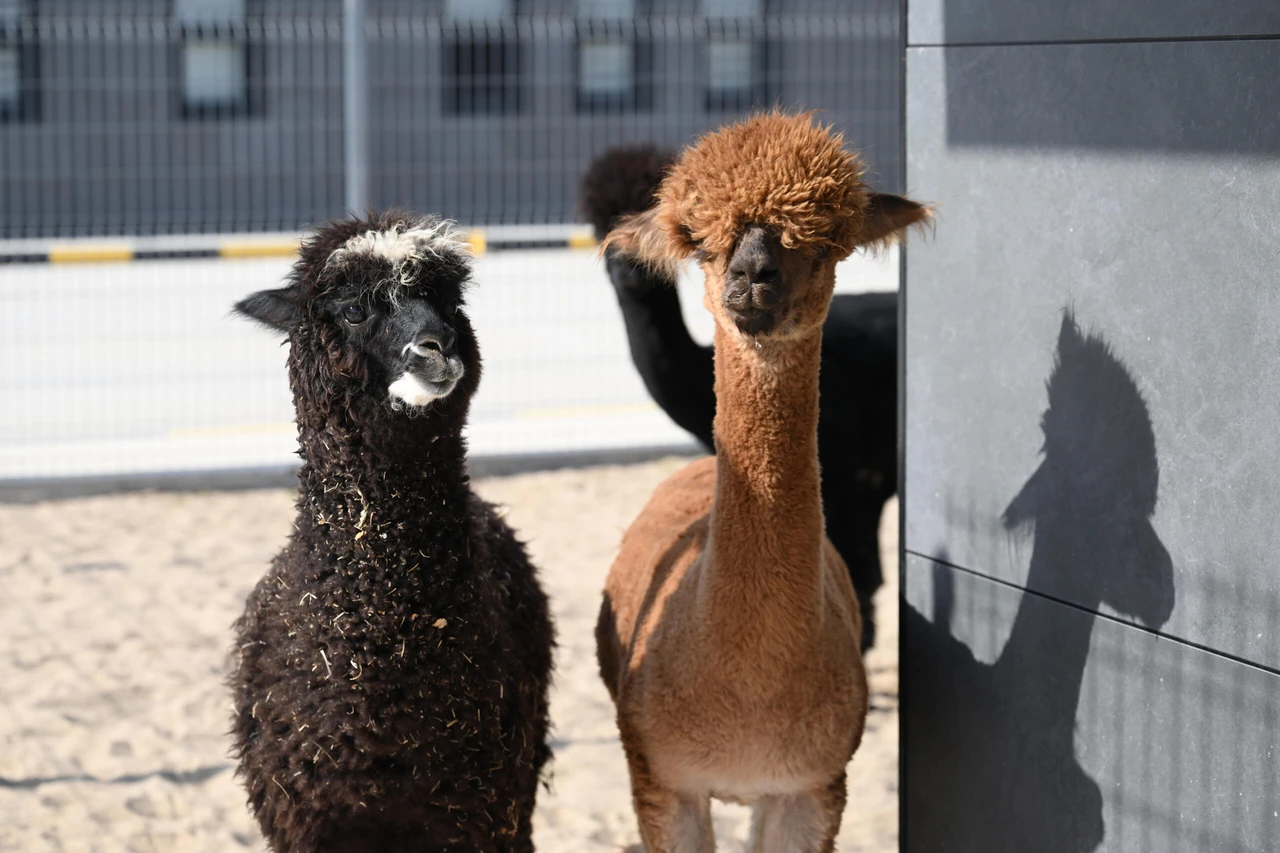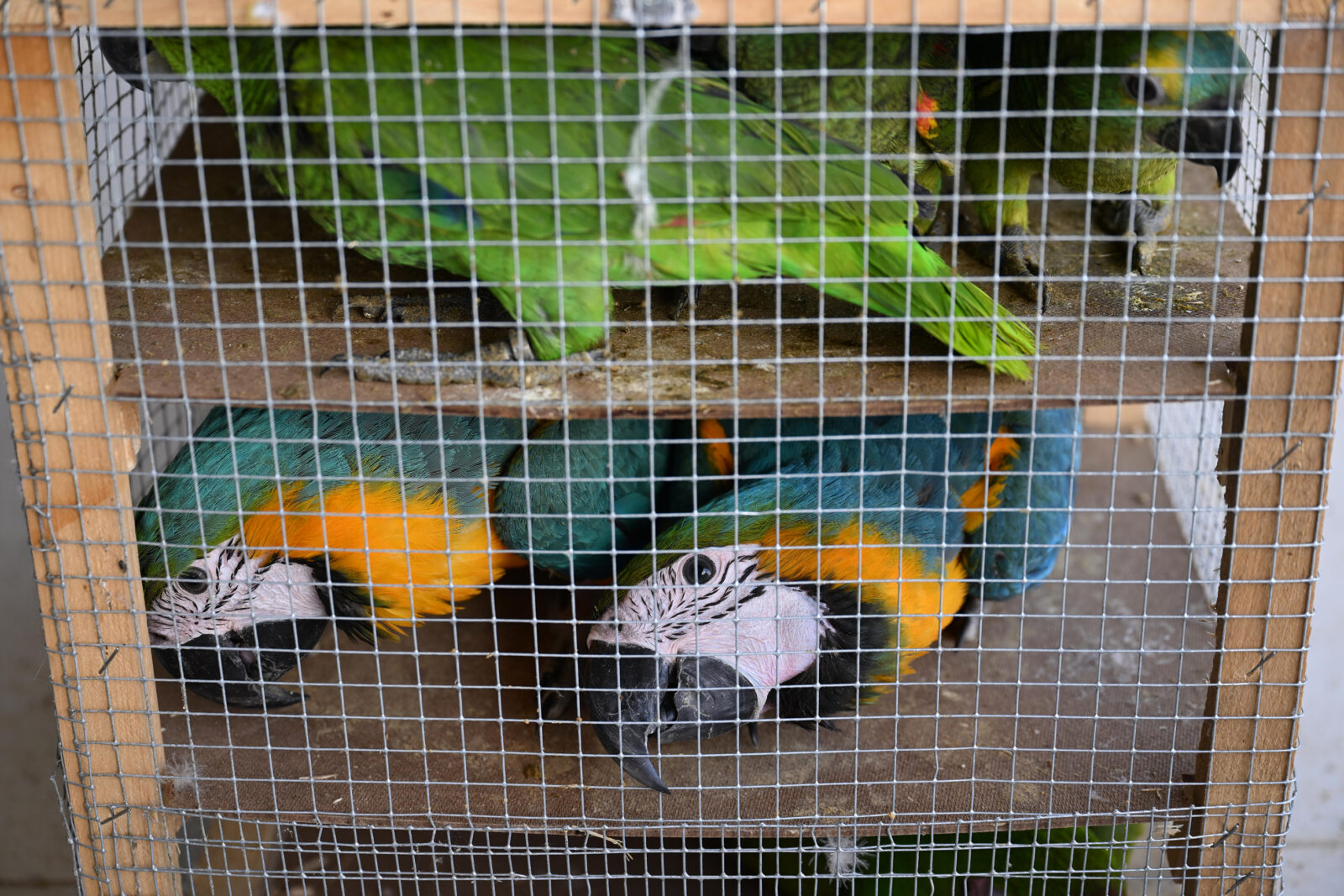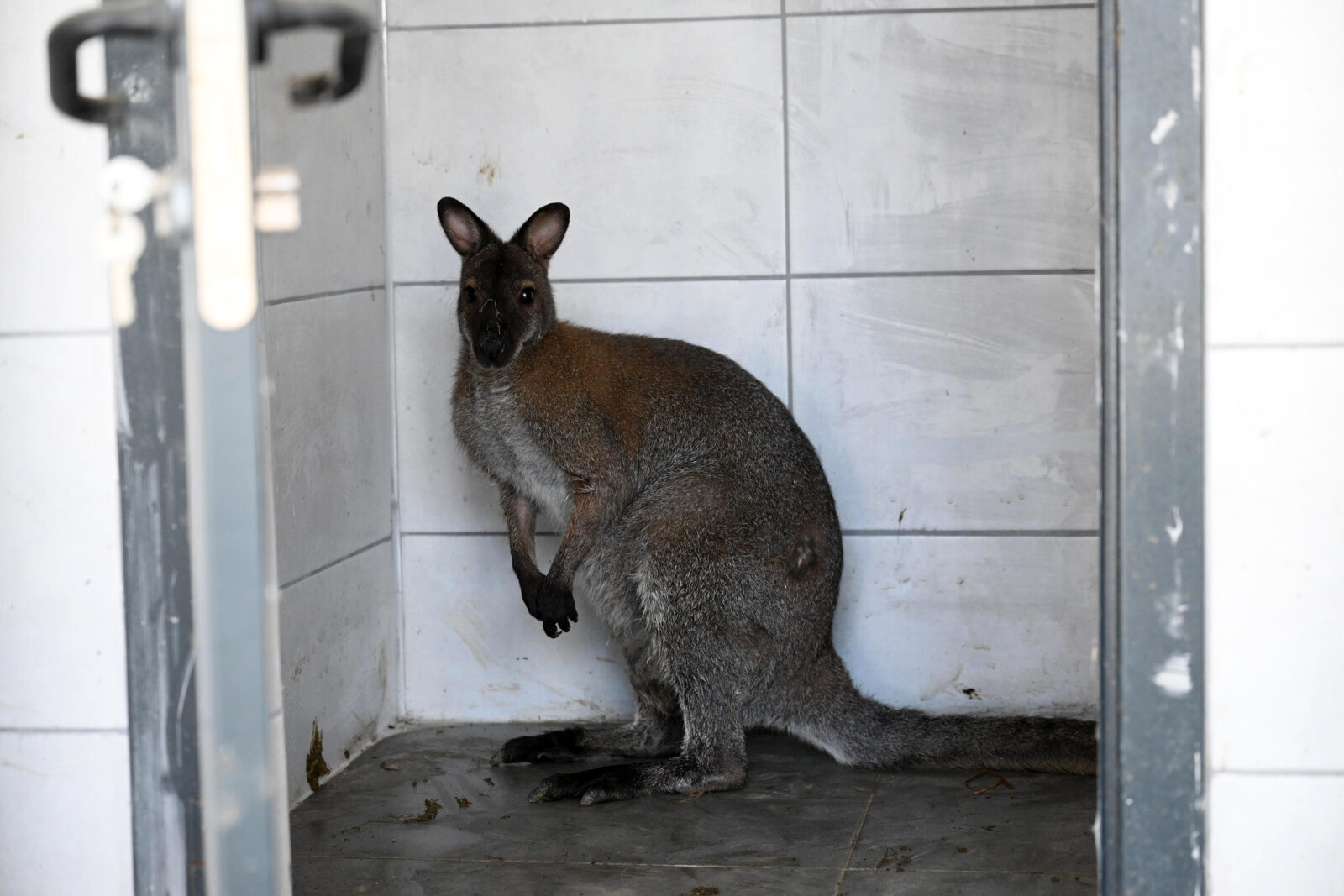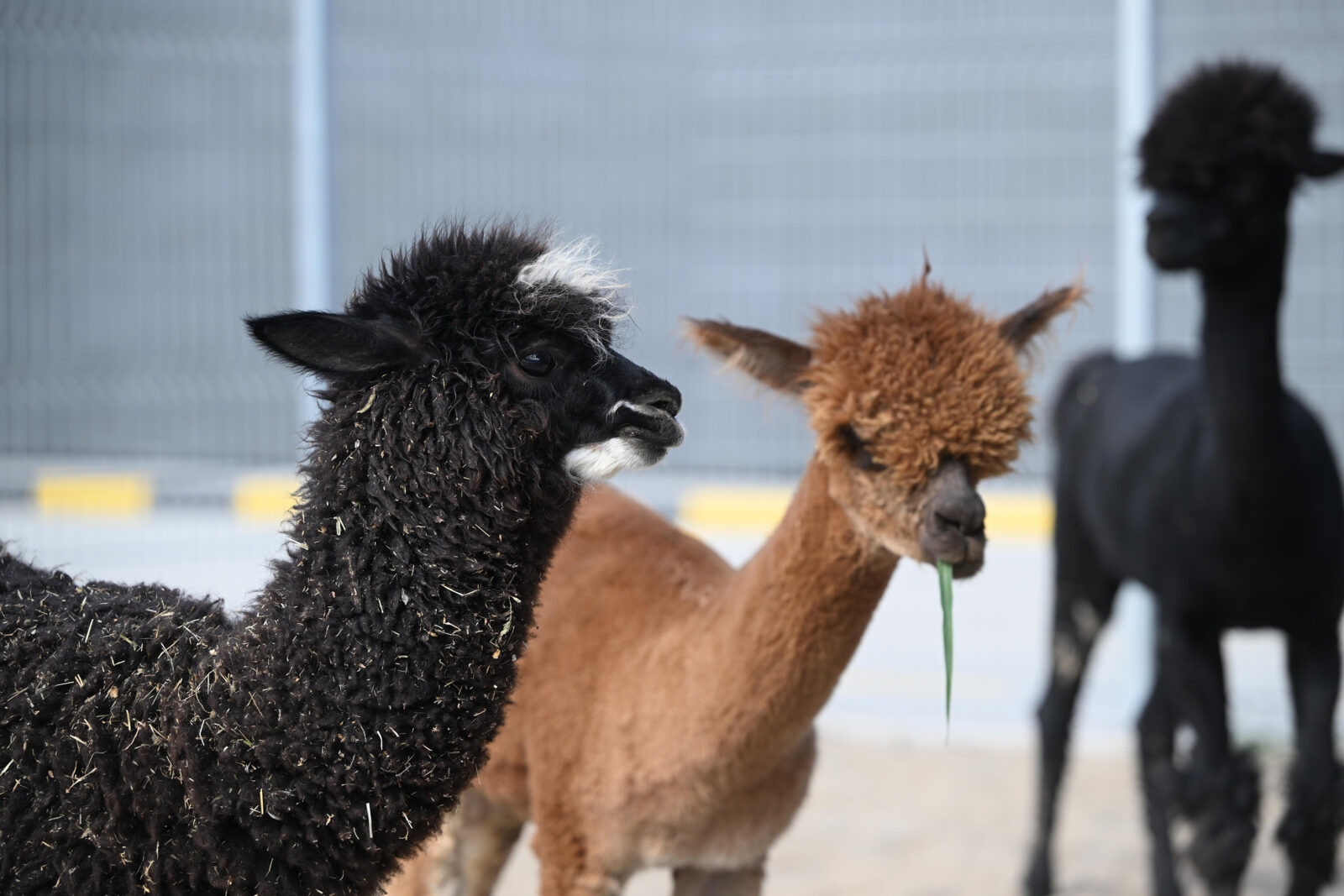Officials seize exotic animals at Türkiye’s Pazarkule border, including kangaroos and parrots
 Exotic animals seized at Pazarkule, Türkiye, August 30, 2024. (AA Photo)
Exotic animals seized at Pazarkule, Türkiye, August 30, 2024. (AA Photo)
In a shocking incident at Türkiye’s Pazarkule border crossing, customs officials intercepted a vehicle attempting to smuggle a range of exotic animals into the country.
The animals seized include kangaroos, alpakas, parrots, flying squirrels and Patagonian maras, raising concerns about illegal wildlife trafficking.
The Greek-registered vehicle, arriving from Greece, was thoroughly inspected by the Anti-Smuggling and Intelligence Branch of the Thrace Customs and Foreign Trade Regional Directorate.
The search led to the discovery of three kangaroos, three alpakas, and a Patagonian mara hidden in the trunk. Additionally, 12 parrots and 23 flying squirrels, some of them juveniles, were found inside the car.
The driver of the vehicle was immediately taken into custody. The seized animals will be handed over to the Nature Conservation and National Parks Branch Directorate for further care and investigation.
This significant bust highlights the ongoing efforts by Turkish customs to combat illegal wildlife trade and protect endangered species.

In recent years, the trade of exotic animals has surged, becoming a significant issue in Türkiye.
Ahmet Emre Kutukcu, Senior Specialist at WWF-Türkiye Wildlife Program, has previously provided striking insights into the scale of this trade in an interview with Independent Türkiye.
A trade since Roman era
The trade of exotic animals dates back to the Roman era. However, in recent years, the growing interest and demand for exotic species have expanded the scope of this trade.
Birds, reptiles and amphibians, among other exotic types, have become popular as pets worldwide. This popularity has both increased supply and demand, making the exotic animal trade a highly profitable industry.
A large portion of exotic animals are captured from the wild. Even species protected under the Convention on International Trade in Endangered Species of Wild Fauna and Flora (CITES Agreement), to which Türkiye is a party, are affected by this trade.
Although trade in protected species cannot be entirely prevented, data on species not under protection is often lacking.
Consequently, relevant public institutions must conduct regular checks, monitor, gather data, and develop national legislation.

In recent years, lizards, frogs and spiders among exotic animals have also gained interest. The sharing of exotic species on social media increases the desire to own such animals.
Typically, these animals are kept in homes or large outdoor cages. However, their living conditions are often inadequate, and many die during transportation.
Globally, the exotic animal trade is considered one of the largest smuggling sectors after drugs, weapons, and human trafficking, with an annual value of approximately $20 billion.
This situation underscores the need for countries to strengthen border and customs controls. Furthermore, enhancing regulations and increasing standards for legal trade are also essential.
Most exotic animals are kept in homes without environments that meet their natural habitat needs.
This leads to health issues for the animals, and some are abandoned in the wild by their owners as they grow.
Species like python snakes are particularly affected, as they are released into forests when they become too large for their owners to handle.

To curb exotic animal trade, it is necessary to increase border and customs controls, ensure that personnel understand the difference between legal and illegal trade, and be informed about smuggling methods.
Reducing demand and regulating legal trade require raising standards and effectively enforcing penalties.
The exotic animal trade is a serious issue not only in Türkiye but worldwide, and solving this problem necessitates international cooperation and stringent regulations.



